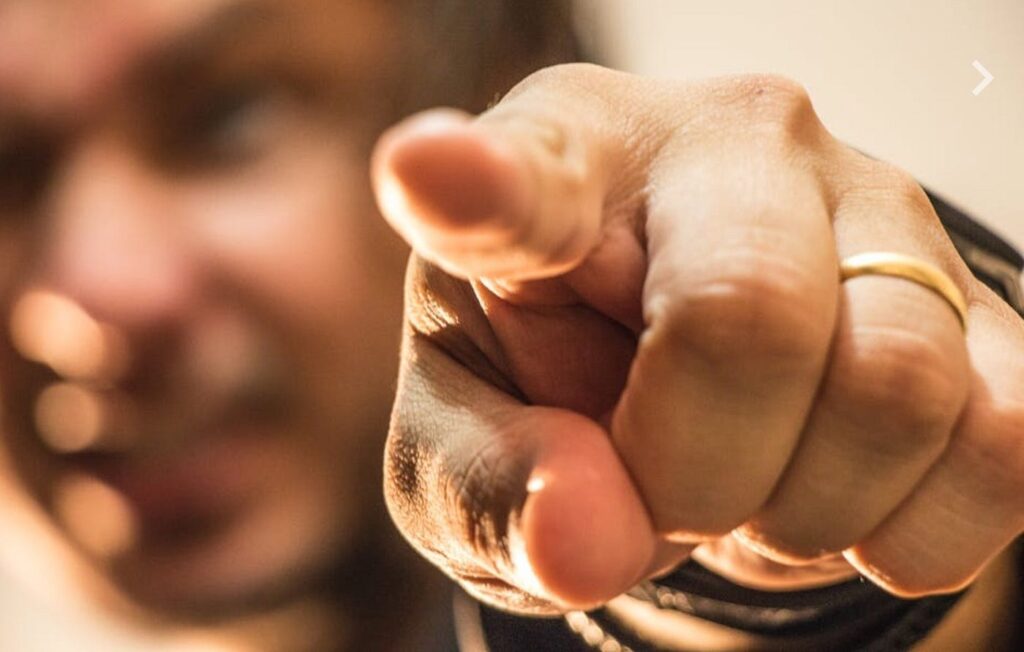Key Takeaways
- Understanding psychological mechanisms behind blaming others.
- Recognizing the social and cultural influences on blaming behaviors.
- Exploring the impact of blame on personal relationships and society.
- Discuss strategies to break the blame cycle and foster accountability.
The Psychology of Blame
When things go wrong, pointing it’s the finger at someone else is a common knee-jerk reaction. But what drives this impulse? From a psychological standpoint, blaming others is a protective shield, safeguarding one’s self-esteem and sidestepping personal responsibility. People may find respite in blame-shifting, as it allows them to preserve their self-image and mitigate feelings of guilt or inadequacy. This tendency is stratified further by cognitive biases, among which the fundamental attribution error stands prominently—whereby people attribute their own mistakes to situational factors while ascribing others’ errors to inherent flaws in their personality. This cognitive distortion fosters an environment ripe for blaming others, which can be found in detail in a thought-provoking piece on blame and responsibility.
Blame can also result from cognitive dissonance, where individuals struggle to reconcile their actions with their values, leading to discomfort and a subsequent search for external factors to reconcile this mismatch. It’s a dance of the mind that aims to align one’s self-perception with reality, often at the expense of others. By projecting blame onto others, we shield our psyche from the harsh truths of our fallibility.
Blame and Personal Relationships
Blame can act like an acid, eroding the bonds that uphold personal relationships. It breeds resentment, distrust, and conflict, eroding the foundation of mutual respect. When an individual blames their partner, it places the accused on the defensive, often leading to a breakdown in communication. Adopting conflict resolution strategies emphasizing empathy and open dialogue is imperative to rebuild these bridges. Techniques such as reflective listening, affirmations, and expressing one’s feelings and needs without casting aspersions can pivot confrontations to conversations, repairing and strengthening the relational fabric.
Recognizing that blaming others is a symptom of deeper relational issues is also essential. Patterns of blame might mask unaddressed grievances or unmet expectations, signaling the need for a more profound exploration of the relationship dynamics. Addressing these underlying causes can help to uproot the habit of blame from personal interactions.
Social and Cultural Influences
The narrative that society spins about blame shapes its prevalence within our interactions. Cultural and social frameworks set the stage on which blame is freely assigned or deflected. In societies where individualism prevails, the concept of personal responsibility reigns supreme, thereby incentivizing the allocation of blame to separate oneself from the collective. This delineation serves a dual purpose: it elevates the blamer’s status by distancing them from error. It enforces societal norms regarding responsibility and competence.
Conversely, in collectivist societies, blame may be more often distributed amongst group members to maintain harmony and social cohesion. The intricate relationship between societal values and blame assigns it an almost chameleonic property—altering its appearance based on the cultural canvas. Consider, for instance, the polarized reactions when a public figure stumbles—some cultures rally in a blaze of scorn.
Society’s Role in the Blame Game
The society serves as a crucible wherein blame is periodically forged and shaped. Its norms and regulations play a definitive role in understanding and accepting blame. For example, in arenas as diverse as the justice system and the workplace, laying blame can have profound implications—ranging from rehabilitation and fairness to punishment and scapegoating. Societal values and attitudes seep into our psyche, giving us implicit permission to indulge in or reject blame. On a broader scale, this social behavior can lead to the stigmatization of certain groups or the pardon of others undeservedly, perpetuating cycles of inequality and division.
In moments of crisis or collective failure, a look at public discourse can magnify prevailing sentiments around blame. How a community attributes responsibility for a disaster and, subsequently, seeks restitution, unveils deep-seated beliefs about justice and fairness. These societal ripples affect individuals in tangible ways, influencing what they expect from others and themselves in the dance of blame and responsibility.
Media Perception and Its Influence on Blame
The media’s portrayal of news and events can have a pivotal impact on collective consciousness. By framing narratives that often pinpoint villains and victims, the media unwittingly skews the audience’s views, nudging them towards premature and sometimes unjustified allocations of blame. Headlines that sensationalize and amplify aspects of stories to attract attention can reduce the nuanced complexity of life to black-and-white caricatures. Through soundbites and selective reporting, this simplification leads to a skewed perception of blame, eschewing the grey areas in favor of a stark and often misleading dichotomy.
As such, conscientious consumers are responsible for engaging critically with the media. One must seek diverse perspectives and undertake the arduous task of discerning truth from sensationalism. It’s a proactive approach to media consumption that respects the intricacies of human behavior and the multifaceted nature of events and their outcomes.
Breaking the Cycle of Blame
Crucial to breaking the cycle of blame is the willingness to recognize our own role in conflicts and misunderstandings. Reflecting on our actions and considering the perspective of others can pave the way for more constructive problem-solving. Acknowledging that mistakes are intrinsic to the human condition and approaching them through learning and growth rather than fault-finding is a key step toward personal and interpersonal healing. Implementing strategies such as fostering open communication, developing resilience in the face of error, and cultivating a non-judgmental attitude can help individuals break free from the blame frenzy and move towards personal empowerment and communal harmony.
Within organizations and groups, cultivating a culture where feedback is viewed as a means for development rather than criticism can also dampen the reflex of blaming. Creating spaces where vulnerability is respected, and failure is seen as a springboard for innovation can mitigate the inclination to cast blame and encourage a collaborative approach to challenges instead.
The Path to Accountability and Change
Embracing accountability means rejecting the simplicity of blame and embracing the complexity of responsibility. It asks, “What can I do differently?” rather than “Who caused this?” This path is paved with actions that foster personal ownership, such as setting clear expectations, creating measurable goals, and establishing transparent communication channels. When a mistake is made, focusing on corrective action and lessons learned rather than punitive measures encourages an environment where individuals feel empowered to own their actions and their consequences.
Tools for maintaining personal accountability could include practices like daily reflections, seeking feedback, and committing to continuous improvement. These resources can serve as compasses that guide individuals toward responsible and mindful decision-making, attentive to their actions and how they influence the larger collective.
Concluding Thoughts: Empathy and Understanding
While it might seem instinctual to search for culprits when confronted with adversity, prioritizing empathy and understanding offers a more constructive path forward. By seeking to comprehend the complex interplay of factors that lead us to point fingers, we can develop preventative strategies that address issues at their roots. Doing so deepens our interpersonal relationships and cultivates a society where blame is used not as a weapon but as a tool for learning and improvement.
Reflecting on these themes brings to light an essential aspect of human interaction—our ability to choose our response to challenges. Within this space, we find the power to replace blame with compassion, accountability, and a collective drive for constructive change.







